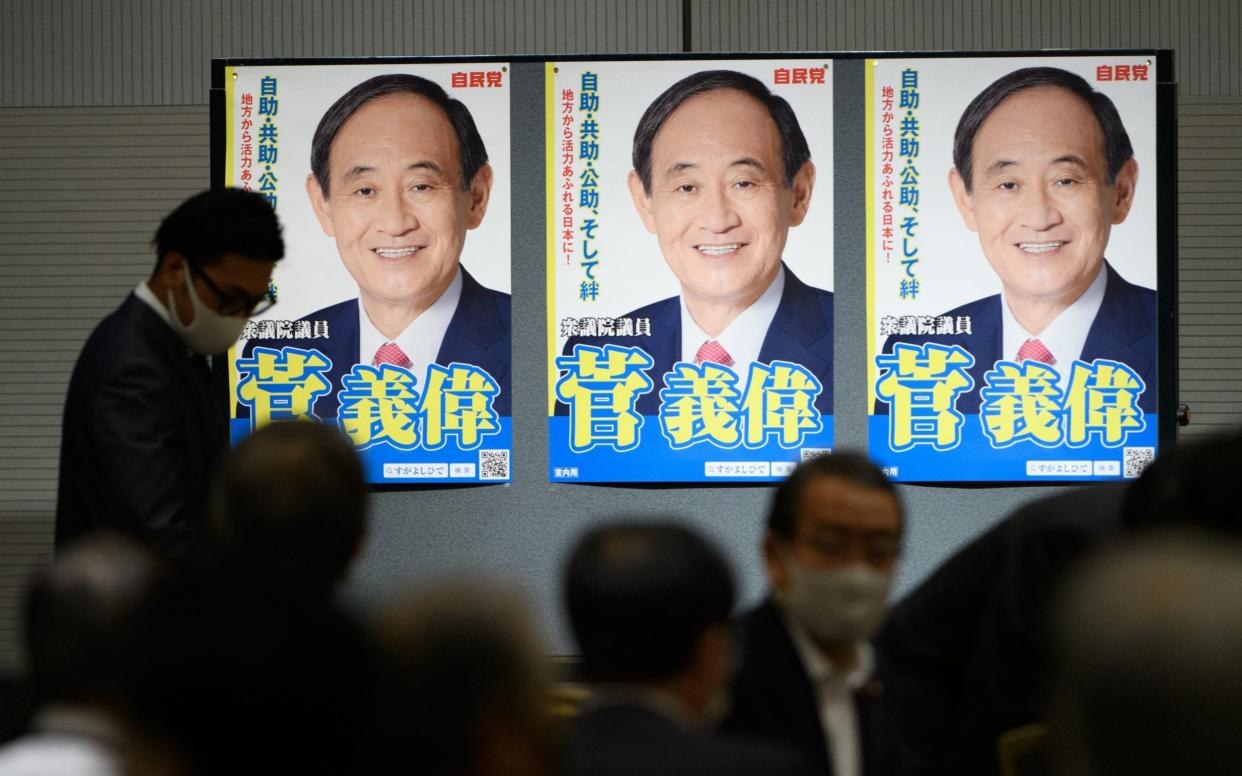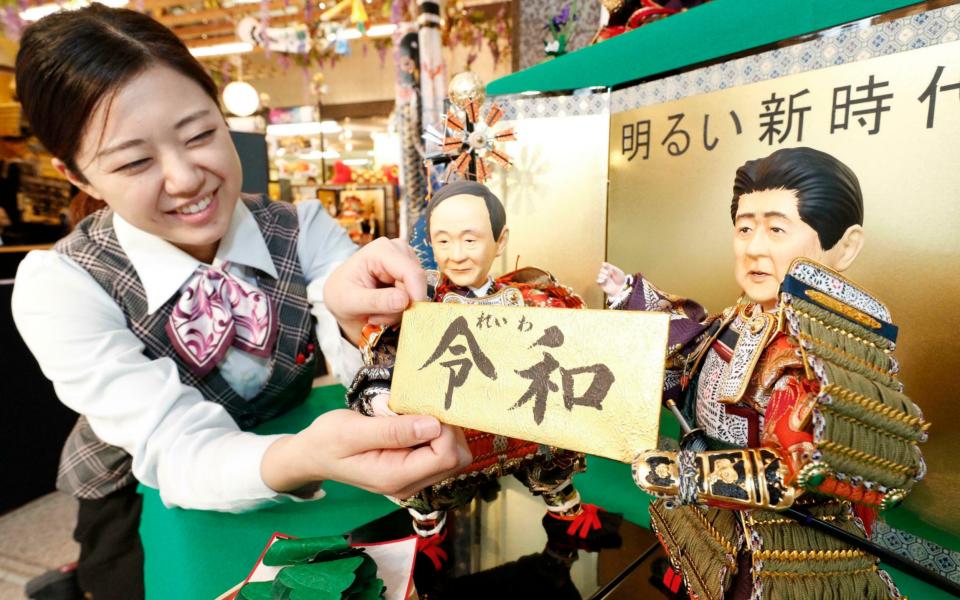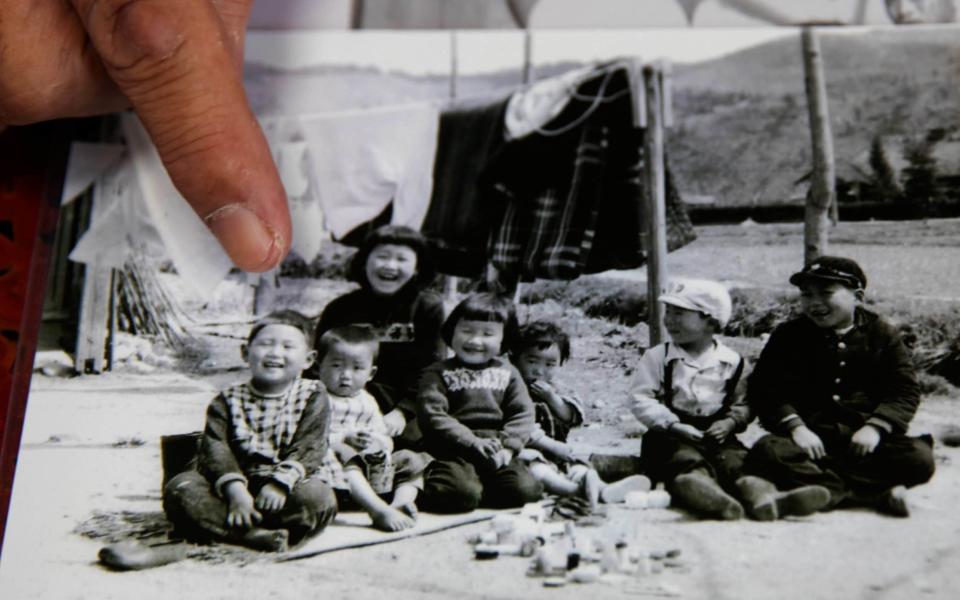How Yoshihide Suga defied the odds to become Shinzo Abe's heir apparent

Twice a day for more than seven years, he has conducted tight-lipped televised press briefings that have earned him the nickname Teppeki – aka The Iron Wall.
Now, Yoshihide Suga, chief cabinet secretary and top government spokesman, appears on track to step into the prime minister’s shoes after winning a decisive victory in the vote to lead the ruling LDP party.
Disciplined, focused, pragmatic - and masterfully skilled at bureaucratic wrangling - Mr Suga, 71, is well established in Japan as a powerful policy coordinator, advisor and all-round right-hand man of the outgoing prime minister Shinzo Abe.
Despite his typically conservative suited appearance, Mr Suga is an anomaly in Japan’s still largely hereditary and hierarchical world of politics (as is the case with the two other candidates - as well as Mr Abe, scion of a political dynasty).
Mr Suga, however, has made no secret of the fact that he comes from more humble origins: he is the son of a strawberry farmer and a teacher from a small rural city Yuzawa, in Japan’s northern prefecture Akita.
“He was very quiet,” Hiroshi Kawai, a former high school classmate who still lives in his hometown, told Reuters. “He was someone you wouldn’t notice if he was there or not.”

After graduating from high school, Mr Suga relocated to Tokyo where he found work in a cardboard factory in order to put himself through night college.
He slowly worked his way into the political world, first becoming an assemblyman in Yokohama, before making his national debut as a Lower House politician in 1996.
A few years later, Mr Suga and Mr Abe are believed to have forged a deep professional connection, bonding over issues such as the North Korean abductions and Pyongyang’s nuclear programme.
This paved the way for Mr Suga to secure his first cabinet position in 2006 as minister of internal affairs and communications during Mr Abe’s first stint as prime minister.

After the PM was forced to step down a year later, again due to ill health, Mr Suga was said to be instrumental in masterminding Mr Abe’s political comeback, which resulted in him winning the 2012 election.
Since then, Mr Suga has been the consistent if low-key and taciturn face of the Abe government. His high-level positions have gone hand in hand with a reputation for skillfully wielding his power to control Japan’s famously sprawling and powerful bureaucracy.
Mr Suga has long kept his wife and three, now adult, sons widely out of the spotlight, and there have been only occasional hints of his private life in the public domain.
Mr Suga’s sweet tooth and love of pancakes is well documented, as is his black belt in karate and his daily habit of rising at 5am, reading the news, doing 100 sit ups and taking a 40-minute walk – before finishing the day with another 100 sit ups.
His profile also surged last year around the time of the Imperial coronation when he announced live on television to the nation the hotly awaited name of a new era, to mark the arrival of a new emperor.
He became a household name after ceremoniously holding up the calligraphy kanji of the new era name Reiwa – resulting in another more affectionate nickname: Uncle Reiwa (Reiwa Ojisan).

Continuity is currently forecast to be a dominant theme for Mr Suga if he succeeds in becoming Japan’s next prime minister.
Policies of so-called Suganomics are likely to embrace monetary easing and fiscal stimulus - key pillars of Abenomics – alongside balancing the coronavirus pandemic with limiting its impact on a fragile economy.
“Suga will carry on the vision Abe is handing over to him,” said Takashi Ryuzaki, a political analyst. “So there is no need for Suga to have his own vision.”

